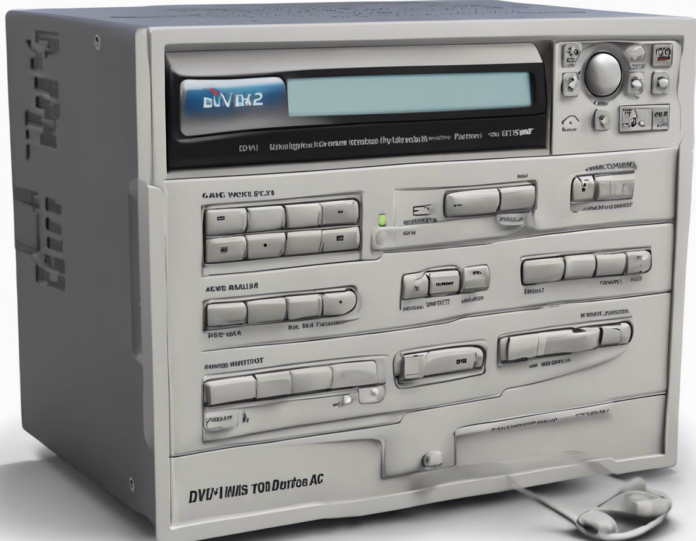Are you wondering what DVR stands for? Well, DVR is an acronym that stands for Digital Video Recorder. In this modern age of technology, where everything is going digital, DVR has brought about a significant revolution in the way we watch television and consume media content. In this comprehensive guide, we will delve into the world of DVR, exploring its functionality, benefits, types, and how you can make the most of this incredible technology.
Understanding DVR
What is a DVR?
A Digital Video Recorder (DVR) is an electronic device that records video in a digital format to a disk drive, USB drive, SD card, or any other storage device. DVRs are commonly used to record television programs for later viewing, allowing users to pause, rewind, fast-forward, and schedule recordings of TV shows and movies.
Evolution of DVR
DVRs have come a long way since their inception. Initially, they were bulky devices that could only record a limited number of hours. However, with technological advancements, DVRs have now become sleeker, more powerful, and capable of recording hundreds of hours of content.
Benefits of DVR
1. Time-Shifting
One of the most significant advantages of DVR is the ability to time-shift television programs. You can record your favorite shows and watch them at a later, more convenient time.
2. Ad-Skipping
DVRs allow you to skip through commercials, saving you precious time during your TV viewing experience.
3. Record Multiple Shows
With a DVR, you can record multiple shows simultaneously, ensuring you don’t miss any of your favorite programs.
4. Storage Capacity
Modern DVRs come with large storage capacities, allowing you to store hours of content without worrying about running out of space.
5. Accessibility
DVR recordings can be accessed from anywhere, allowing you to watch your favorite shows on various devices.
Types of DVR
1. Cable DVR
Cable companies often provide DVR services as part of their cable TV packages. These DVRs are integrated with the cable box and can only be used with the specific cable provider.
2. Standalone DVR
Standalone DVRs are independent devices that can be connected to any TV or cable box. They offer more flexibility in terms of storage and features.
3. Network DVR
Network DVRs are cloud-based DVR systems that store recordings on remote servers. This allows for greater accessibility and scalability.
How to Use a DVR Effectively
1. Schedule Recordings
Make use of the DVR’s scheduling feature to automatically record your favorite shows.
2. Organize Recordings
Create folders or playlists to organize your recordings for easy access.
3. Manage Storage
Regularly delete old recordings to free up storage space for new content.
4. Use Advanced Features
Explore advanced features such as pausing live TV, recording series, and setting up parental controls to enhance your DVR experience.
Frequently Asked Questions (FAQs) About DVR
1. Can I watch live TV on a DVR?
Yes, most DVRs allow you to watch live TV and pause, rewind, or record the live broadcast.
2. How much storage does a DVR typically have?
The storage capacity of a DVR can vary, but modern DVRs usually come with at least 500 GB of storage.
3. Can I transfer recordings from one DVR to another?
In some cases, you can transfer recordings from one DVR to another using external storage devices or network transfers.
4. Do I need an internet connection to use a DVR?
While an internet connection is not necessary to use a DVR for recording TV shows, it may be required for certain features like on-demand content or remote access.
5. Can I fast-forward through commercials on a DVR recording?
Yes, one of the main benefits of DVR is the ability to skip through commercials by fast-forwarding during playback.
In conclusion, a Digital Video Recorder (DVR) is a powerful tool that has revolutionized the way we watch television. With its time-shifting capabilities, ad-skipping features, and vast storage capacities, DVRs have become an essential part of modern entertainment systems. By understanding how to effectively use a DVR and exploring its various types, you can elevate your TV viewing experience to a whole new level.












